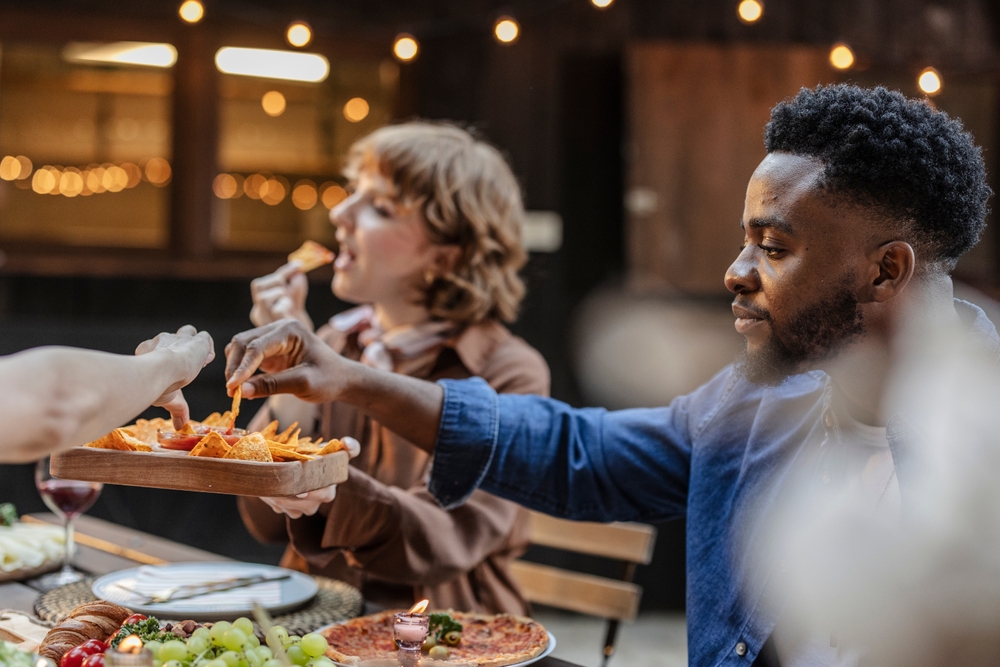The Value of Sharing Meals with Others
In our fast-paced and increasingly digital world, the simple act of sharing a meal with others holds profound significance that extends far beyond nourishment. While eating is a basic human need, the experience of breaking bread together fosters connection, strengthens relationships, and promotes well-being. As we approach 2025, understanding the value of communal meals is more important than ever. This article explores the multifaceted benefits of sharing meals with others, highlighting its impact on social bonds, mental health, and cultural continuity.

Strengthening Social Bonds Through Shared Meals
One of the most compelling reasons to share meals with others is the unique opportunity it provides to forge and deepen social connections. Eating together creates a natural setting for conversation and emotional exchange, which helps build trust and intimacy among participants. Whether it’s a family dinner, a gathering of friends, or a community potluck, sharing food fosters a sense of belonging and togetherness.
Research consistently shows that people who regularly eat with others report higher levels of happiness and life satisfaction. In 2025, as society continues to grapple with feelings of isolation and loneliness exacerbated by technology and remote lifestyles, communal meals act as a powerful antidote. They encourage people to pause, engage face-to-face, and nurture relationships that might otherwise weaken.
Moreover, shared meals often serve as a platform for intergenerational interaction. Families that eat together regularly allow younger members to absorb traditions, stories, and values from elders, creating continuity and a shared identity. This ritual strengthens familial bonds and helps build resilience within the family unit.
Enhancing Mental and Physical Well-being
Beyond social benefits, sharing meals has notable effects on mental and physical health. Eating with others tends to encourage healthier food choices and better eating habits. For instance, people are more likely to consume balanced meals rich in fruits, vegetables, and whole grains when dining with family or friends, as opposed to eating alone where unhealthy snacking or rushed meals are common.
Furthermore, the act of sharing meals can reduce stress and improve mood. The social interaction involved stimulates the release of oxytocin, often called the “bonding hormone,” which promotes feelings of happiness and reduces anxiety. In 2025, with rising awareness around mental health, communal dining is increasingly recognized as a simple yet effective way to support emotional wellness.
From a physiological perspective, studies indicate that people who eat with others tend to have better digestion and metabolism. The relaxed atmosphere of shared meals allows the body to better process food, compared to eating alone in stressful or distracted states. This holistic benefit underscores the importance of not just what we eat, but how and with whom we eat.
Preserving Culture and Tradition Through Food
Food is a powerful cultural symbol, and sharing meals plays a crucial role in preserving and celebrating cultural heritage. Each cuisine carries with it stories, rituals, and histories that are transmitted through recipes and mealtime traditions. When people gather to eat, they participate in a living cultural experience that reinforces identity and community cohesion.
In multicultural societies, sharing meals offers a bridge between different backgrounds, fostering mutual understanding and respect. For example, community events where diverse groups share traditional dishes promote cultural exchange and break down barriers. This dynamic is especially important in 2025, as globalization brings people closer together but also challenges the preservation of unique cultural identities.
Family gatherings during holidays and special occasions often center around food, using recipes handed down through generations. These traditions create powerful emotional ties and a sense of continuity, reminding participants of their roots and shared histories. By engaging in these rituals, individuals contribute to the ongoing story of their communities and keep cultural memories alive.
Conclusion
In a world where efficiency and individualism often dominate, the value of sharing meals with others remains a timeless and essential human experience. Beyond satisfying hunger, communal dining nurtures social bonds, enhances mental and physical health, and preserves cultural traditions. As we move further into 2025, it is vital to recognize and embrace the power of shared meals to connect us, enrich our lives, and strengthen the fabric of society.
Whether it’s a casual weekday dinner or a festive celebration, taking the time to eat together is an investment in our collective well-being. In doing so, we not only feed our bodies but also nourish our hearts and communities.
Disclaimer: All content, including text, graphics, images and information, contained on or available through this web site is for general information purposes only. The information and materials contained in these pages and the terms, conditions and descriptions that appear, are subject to change without notice.






